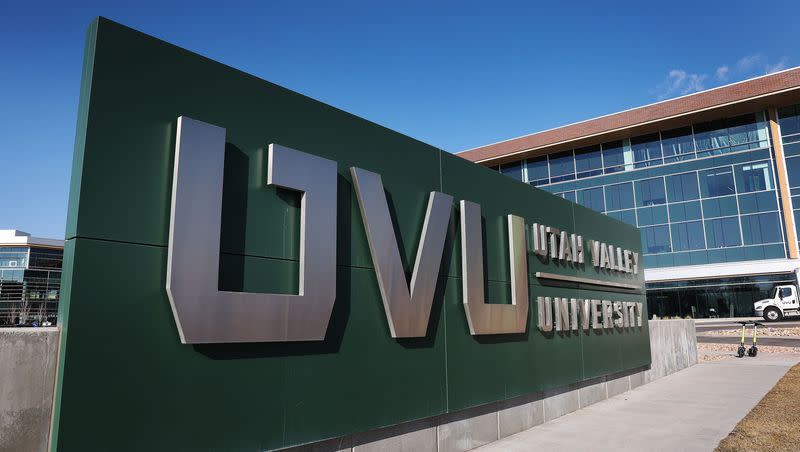Opinion: What is the value of a college degree?

It’s the height of college graduation season, and we just celebrated 8,517 Utah Valley University students who earned 9,629 associate, bachelor’s and master’s degrees and certificates. This is a joyous time, but nationally, there is a growing chorus of voices questioning the value of a college degree.
So, what is the value of a college degree? Let’s put that question to rest.
A first measurement of value comes from the actual cost of education. UVU, like many universities, is working hard to make higher education affordable. UVU is performing well, with tuition priced 40% lower than the national average. Even then, most students don’t pay the already low sticker price. In fact, 47% of our students receive financial aid, which covers a whopping 90% of tuition and fees and does not need to be repaid! Another 30% are high school concurrent enrollment students whose tuition is just $5 per credit hour. UVU’s affordability makes it the top choice for Utah County residents, with 73% of students choosing UVU over other public colleges and universities in the state.
A second measurement of value comes from economic returns, including the jobs students land upon graduation. Between 2017 and 2021, UVU saw a 72.5% increase in graduates securing awards for four- and five-star jobs (a state designation for high-demand and high-wage positions.) Other measures of return on investment include earnings, lower poverty rates, lower use of social safety net programs, higher employment rates and the ratio of earnings to college costs. I am proud to say that UVU does well in all those categories and has been recognized as a top performer nationally.
Related
Dollars don’t tell the whole story, though. College graduates in the United States are also less likely to be incarcerated. They improve their communities by voting 32% more and volunteering 42% more than their peers. They also contribute more to the tax base and give more to charity.
Benefits are measurable even for those who attend some college but don’t graduate. Studies consistently show that adults with any postsecondary education make up to $1 million more over their lifetimes than their less-educated peers. They are less likely to be unemployed, less likely to live in poverty, less likely to smoke and more likely to exercise.
Utah higher education institutions are doing an exceptional job at ensuring residents can access these benefits. The Lumina Foundation, which tracks post-high school education (also known as educational attainment), ranks Utah third nationally (after Washington, D.C., and Massachusetts), with an attainment rate of 61.1% — well above the national average of 53.7%.
The benefits are clear. But the risks that come from not pursuing higher education should be clearly spelled out, too. Today, we are part of a rapidly changing global economy, and our country finds itself in tense competition with countries like China, which has caught up with and even surpassed the U.S. in some economic and tech areas. How did they catch up so fast? And how do we maintain our strategic advantage? The answer to both questions is, in part, education.
China has allocated massive amounts of capital to education, with an emphasis on science, technology, engineering and mathematics, or STEM, education. Over the past decade, China has increased spending on higher education by about 20%, with a total yearly investment of over $310 billion. The number of students enrolled in colleges, universities and vocational schools increased by 38 million over 20 years, with 45 million students currently enrolled. China invested nearly $456 billion in research and development last year, resulting in a growing number of patents coming out of the country.
In the field of artificial intelligence alone, China produced 31% of all AI research papers in 2019. And in the top 1% of the most-cited AI research, China outnumbered the U.S. by 2:1.
Investing in higher education is critical to our country’s success, and it empowers people to earn more, live healthier lives and become more active and productive citizens.
UVU provides a helpful example of how higher education can reach more people. As an integrated community college and university with an open admissions policy, we welcome any student who wants to grow. We provide a range of flexible learning pathways to ensure each student can choose the option that makes sense for them — whether that’s a certificate program or an associate, bachelor’s or even master’s degree.
Although there are some who persist in devaluing college, the future of our communities and our nation will very much depend on the outcomes of our education system. I’m grateful to the residents of Utah who see the value of and support higher education.
Astrid S. Tuminez is president of Utah Valley University. Ethan Morse is a recent UVU graduate and is about to start a master’s degree in cybersecurity at Boston College.

